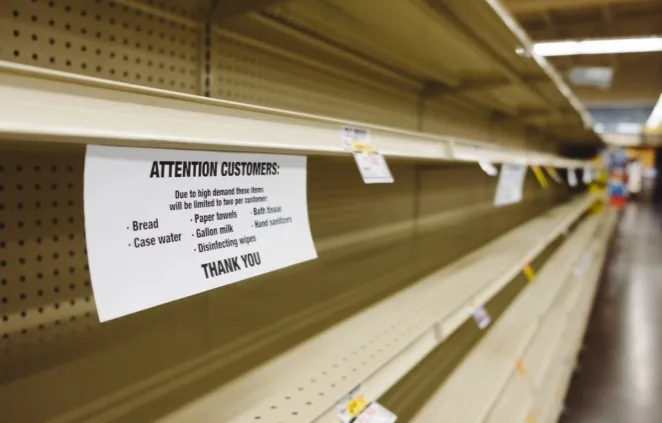Many brands have seen unexpected spikes in sales over the past few weeks as consumers across the country stock up on household items and shift their purchasing to online channels. After the unexpected run on various product categories in March, it’s likely that some brands are experiencing out of stock issues. Amazon has pulsed its ordering from vendors and restricted inbound Fulfillment by Amazon (FBA) shipments for sellers, to adapt to the unexpected surge in demand.
While many of these brands have been able to take advantage of the increased sales and pull forward inventory from future months’ supply, they may be facing the prospect of long-term supply chain constraints which could impact their ability to fulfill future orders. This is especially true for brands whose production takes place overseas, including countries that may have been hit earlier by COVID-19. If your brand is faced with these challenges, there are several steps that you can take today to mitigate risk and ensure that your advertising dollars go as far as possible.
- Stacked Campaigns: Begin launching stacked campaigns by cloning existing campaigns but lowering bids. Leverage backup ASINs with deeper in-stock availability to start creating relevancy as you prepare to shift demand, should inventory constraints worsen.
- Subscribe & Save: Promote items in Branded-keyword campaigns that have high Subscribe & Save rates, to ensure that sales are going to items and customers with a higher likelihood of repeat purchase and thus a higher lifetime value.
- Diversify: Update Branded-keyword campaigns to focus on items that have lower organic ranking to drive trial and improve organic search position.
- Variations: Focus on less popular variants of top selling, higher trafficked items by adding them to existing, single-ASIN campaigns. This will shift traffic to products that customers are more likely to purchase as a substitute for the hero item in the variation.
- Pack Size: Shift focus to driving higher count/pack size variants of top selling items. It’s important to ensure these items are variated with the hero item so that consumers can easily navigate to and convert on the hero item if the larger pack size is not desirable.
- Auto Campaigns: Reduce budgets on Auto campaigns to better control which items your ad dollars are surfacing.
- Prolonged Out-of-stocks: If out of stocks are expected to persist on key items, it may be best to remove the impacted item(s) from the variation and work with your Amazon point of contact or agency partners to identify additional avenues to drive traffic to substitute items until inventory levels rebound.
- Leverage Automation: If your business is expected to suffer from prolonged out of stocks, increase focus on driving efficiency with your advertising performance. Be sure to optimize programmatic bidding rules and daypart bidding settings, prioritize campaigns that return a strong balance of sales volume and ROAS, and leverage Auto campaigns to find cheap clicks and identify new targeting opportunities.
- Learn from Your Competition: In an effort to maintain and/or grow share as brands navigate through this crisis, it’s critical to keep a close eye on your competitors and trends in the category. Study key competitors with out of stock issues and learn from their strategies.
- Sponsored Brand Campaigns: Monitor Sponsored Brand campaigns that contain ASINs with low inventory or high Lost Buy Box issues. These campaigns do not automatically pause when component ASINs run out of stock, and will continue to drive traffic to 3P offers if your offer is no longer active. Pausing campaigns or launching parallel campaigns with heavily stocked products can help ensure that you’re only paying for traffic that will result in 1P sales.
When used together, these tactics can help mitigate out of stock issues and grow your brand’s total business beyond top selling items.













